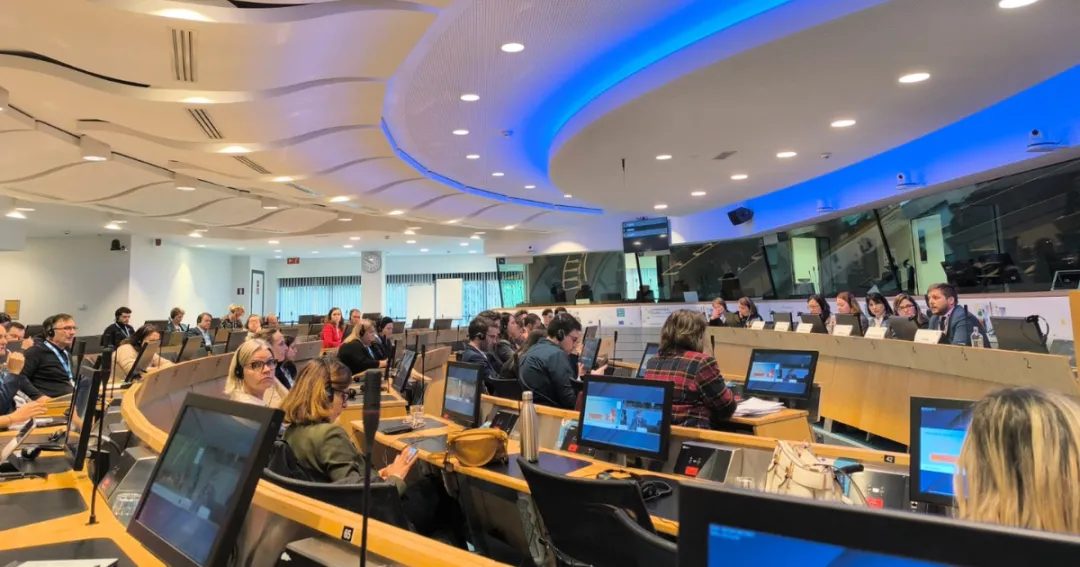Empowering local communities for a sustainable Europe: insights from EU Regions' Week 2025
- Rural Pact
- Rural Revitalisation Platform
- Stronger Rural Areas
- Prosperous rural areas
- Resilient rural areas
- Connected rural areas
Europe is at its best when it empowers local actors – a theme that echoed throughout the 2025 European Week of Regions and Cities (13–16 October, Brussels). The Rural Pact Support Office took part in several sessions, exploring how local and regional authorities are driving the green, digital, and demographic transitions. Explore the insights revealing that empowering local communities is essential to building a more cohesive, sustainable, and future-ready Europe.

© European Union, 2025
Entrepreneurship and competitiveness: creating reasons to stay
Retaining and attracting people and talent in rural areas requires more than reversing outmigration – it means creating places where people want to live, work and return. Local intermediate authorities can support the building of inclusive entrepreneurial ecosystems through digital connectivity, access to finance, and social infrastructure.
Sustainable growth must be anchored in a place-based approach, tailoring investments, governance and innovation to territorial specificities and ensuring every region – including rural and sparsely populated ones – can innovate. A stronger alignment between cohesion policy, regional innovation strategies, and local ecosystems is necessary to unlock new opportunities through digitalisation, circular economy models, and smart specialisation.
Beyond economic opportunity, dignity, access to services, and a sense of belonging are what ultimately make people choose to stay, return or move to rural areas. While targeted investments are necessary to create thriving rural economies, fostering motivation, identity, and community pride requires long-term commitment and place-based action.
Integrated territorial development and rural proofing
Evidence-based policymaking, multi-level coordination, and place-based strategies – key pillars of integrated territorial development – can help Europe’s rural territories thrive by addressing population decline driven by ageing and making them more attractive to younger generations. The EU’s rural vision and Rural Action Plan are key frameworks for ensuring that agriculture, environment, innovation, and social policies work in synergy for rural revitalisation.
Complementing this, rural proofing must be embedded throughout all stages of policymaking – from design to implementation – guided by a clear vision and well-defined responsibilities across governance levels (read more insights from the recent Rural Pact Policy Lab). To be effective, the process requires not only awareness among decision-makers, but also the active engagement of civil servants, whose continuity helps sustain rural-sensitive policymaking.
Digital skills and innovation
Digital inclusion emerged as a recurring theme across several sessions. A growing digital skills gap between rural and urban areas highlighted the urgency of targeted investment in training and connectivity. Examples from across Europe showed that e-democracy and digital tools can sustain community cohesion even in times of crisis (such as in Ukraine), demonstrating that the EU’s digital transition becomes truly effective when municipalities and Local Action Groups (LAGs) translate it into tangible, citizen-led innovation.
Meanwhile, digital innovations such as AI, digital twins, and e-governance can make the ‘right to stay’ tangible by improving local access to healthcare, education, and mobility – provided that technology remains rooted in community needs. Effective deployment depends on local-actor engagement, data-driven governance and tailored infrastructure, while aligning digital strategies with territorial and demographic policies creates a tangible foundation for resilient, attractive regions where staying is a conscious and empowered choice.
Gender equality, the twin transition and resilience
Targeted action is necessary to unlock women’s potential in the green and digital transitions. Gender equality in innovation and entrepreneurship requires the active participation of all stakeholders – from policymakers and businesses, to local communities. Stronger gender-sensitive financial instruments, tailored training in digital and sustainability skills, and mentorship programmes to support women innovators and entrepreneurs can accelerate both sustainability and inclusiveness.
At the same time, building resilience in cross-border territories requires long-term cooperation, trust, and shared responsibility between regions and municipalities rather than short-term crisis response. Coordinated preparedness plans, bilateral protocols, and joint investments in infrastructure and communication systems can strengthen communities’ capacity to anticipate, withstand, and recover from future shocks.
Together, these sessions highlighted that Europe’s rural future relies on empowering people and places, enabling them to thrive through effective governance, well-connected local ecosystems, and policies that translate rural potential into sustainable development. The highlighted sessions are a small selection of the many insightful events held in the framework of EU Regions' Week - discover more on the official website.